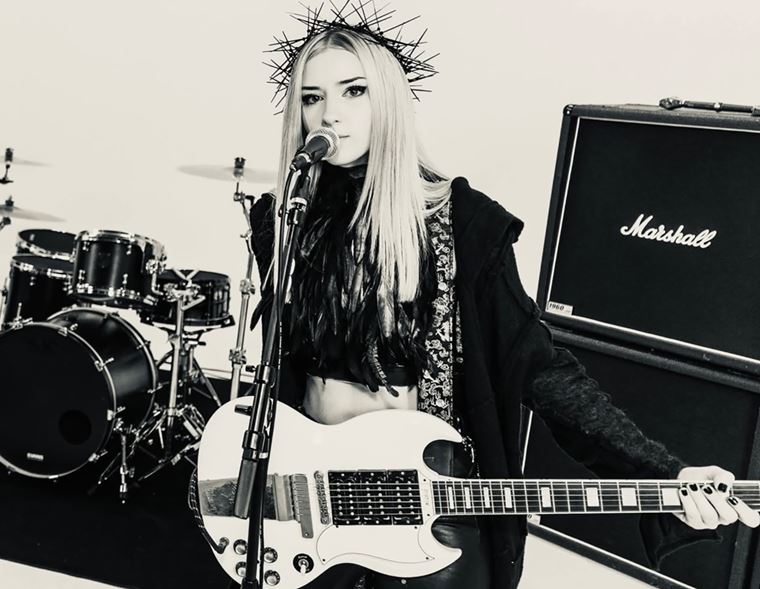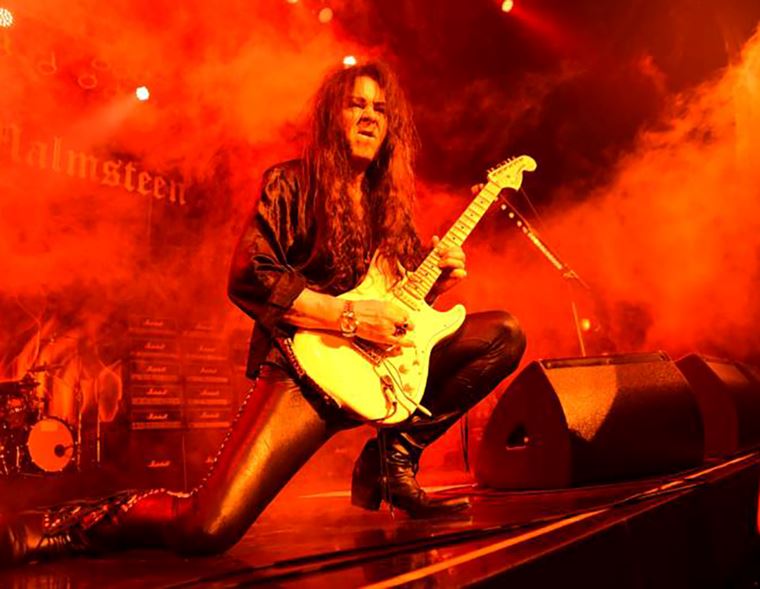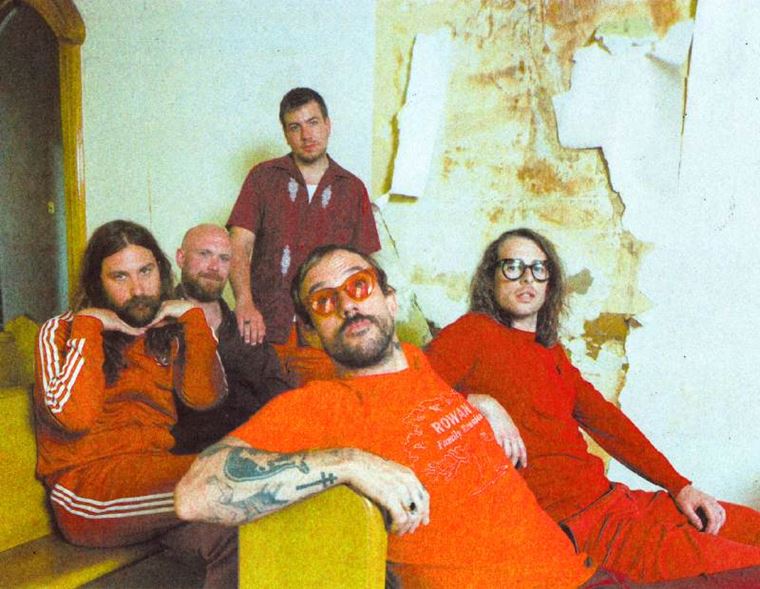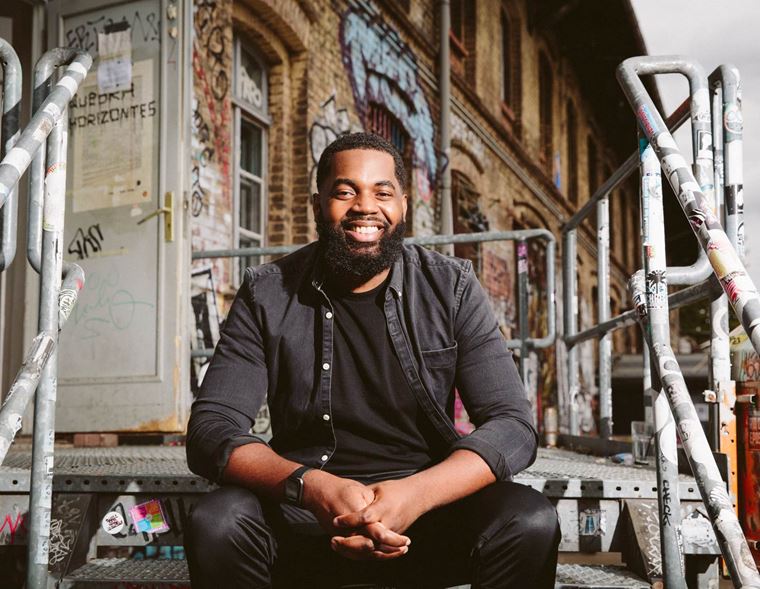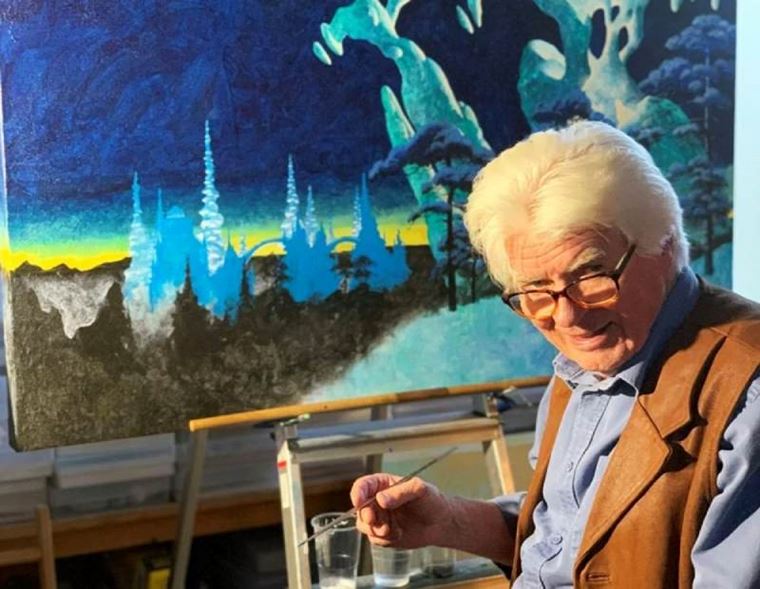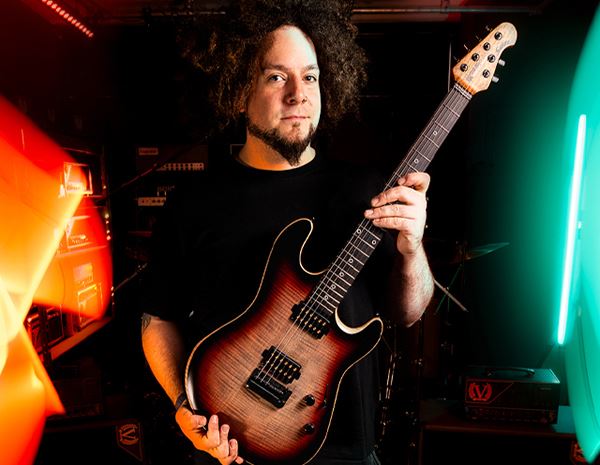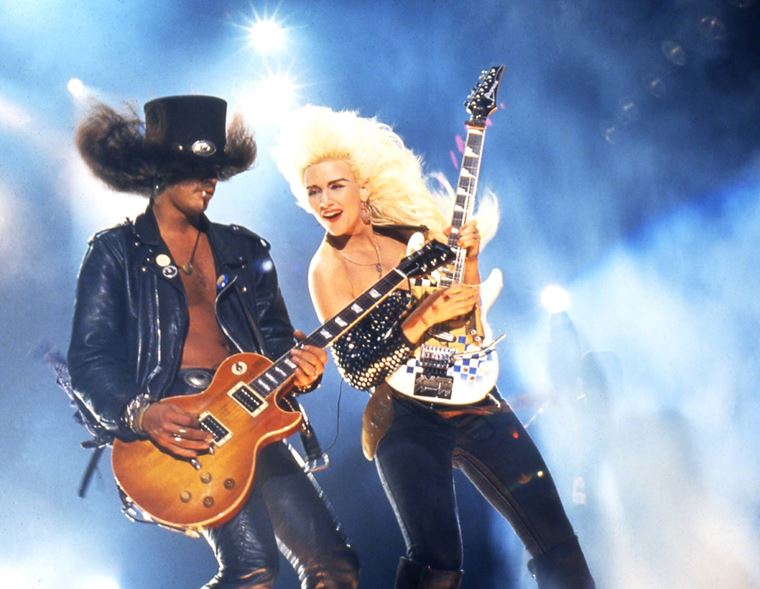The guitarguitar Interview: Samantha Fish
Published on 25 October 2020
Are you looking for some inspiration?
You’ll get loads here.
Samantha Fish, the Louisiana-based Blues Rock singer and guitarist, walks the walk like no other. Super-talented and super-motivated, Samantha has harnessed her ambitions, grabbed her career by the lapels and just flat out gone for it, throwing herself into her destiny as one of the spearheads of the current Blues scene. She’s an inspiration indeed.
.jpg)
(Photo: Kaelan Barowsky)
Samantha is a world-class slide player with a supersonic singing voice and an ear for melodies that make her songs stand out on modern radio. Over an eleven-year career that has - so far - seen her release no less than ten records, Samantha has barely stopped for air. This, as we will learn, is the pace for a modern artist, no matter how established you or your chosen genre is. Samantha proves that you’ve got to work for it, no matter how predisposed you may be for such a task. If you want it, it’s there but you’re going to sweat for it!
As with pretty much all touring musicians right now, Samantha has been unable to tour since the beginning of the year due to COVID restrictions. This has meant that she hasn’t been allowed to really dig into her latest album, Kill or Be Kind, since she was just getting into the swing of it all when the lockdown stopped everyone in their tracks. The European leg of her tour has been re-organised for next March, when the world will hopefully be in a better place for musicians and fans alike to enjoy what we love most: live music.
In the meantime, Samantha was good enough to sit down at her laptop for us one bright Tuesday afternoon, and chat to us via Zoom. We’re happy to report that she is, in conversation, just as you’d hope her to be: intelligent, friendly, articulate, funny and happy to share advice. She’s great company, and through a slightly shaky internet connection, we were able to link New Orleans to Glasgow and discuss the Blues, tunings, bleeding fingernails, and the equal importance of every little detail in your career as an artist.
Samantha Fish: Hey man, how are you? Are you doing okay with everything that’s going on?
guitarguitar: Oh yeah, it’s been five months of working from home rather going in to the office. It’s been interesting! But if I can get through to people on the computer like this, it’s all good, know what I mean?
SF: Yeah, for sure man. I’ve been doing so many writing sessions, just like, virtual type things.
GG: How is that working out for you? Writing was gonna be part of what I wanted to talk to you about anyway, but when it’s remote like this, how does it work for you? Do you come up with, like, chord progressions and send them over to someone else?
SF: It kind of varies. Sometimes I’ll come up with the music first, other times I’ll start sketching out lyrics. You know, sometimes you just start from scratch with a person and just kinda work off a melody, or work off on an idea, like a lyrical hook. There are really many ways up that mountain, you know? I haven’t exactly found the specific way that I like to do things. Really, it’s whatever it takes to get the song out.
"You can find tone in anything"
GG: Yeah, that’s interesting. Co-writing’s a strange one, though, isn’t it? Because, if you’re sitting at home with your guitar, and you have a particular idea in mind, you can kind of like chip away at the sculpture in order to shape it. But when you’ve got somebody else, do you ever find that there’s a kind of weird disconnect whatever you’re writing, and whatever they come in with?
SF: Yeah, yeah, I mean, I always try to suss out what the strength is from the collaborator. Like, I work with a lot of lyricists, so I know that if he’s like an incredible lyricist, I’m going to do my best to come to it with the musical part of it. It’s just about trying to contribute as much as you can in every realm, but, you know, I’ve written some songs with guitar players, so we start with the riff and then I’ll take the lead off with the lyrics. Whatever. You just kind of figure out your strengths are in each other, and then try to complement that.
.jpg)
(Photo: Simon Green)
GG: Yeah! Cool. And do you tend to write on an electric guitar or an acoustic? Each is a different kind of headspace, isn’t it?
SF: I usually...I used to mostly write my songs on the acoustic guitar, but I’m really trying to...you know, every guitar has a different personality. It makes you approach something a little different. So, sometimes I’ll pick up something that I don’t play very often. Like, I’ve got a Danelectro: okay, I’m gonna mess around on this and see what I can come up with! Sometimes these little ideas are just born out of picking up a different guitar, and then Boom, you’re on your way to writing a song! So, I’m trying to let go of the acoustic thing so much, that’s just always how I’ve done my demos, but I think it’s healthy as a songwriter to, you know...even just picking something up can help change your approach.
GG: Big time! Certainly, yes. I can’t wait to get to the stage where we’re going to speak about your slide guitar, but even having guitars sitting around in different tunings for slide purposes, that will change your whole process of writing, won’t it?
"Every guitar has a different personality, it makes you approach something a little different"
SF: Absolutely! Like a different tuning, anything. Just make a change, you know, something different from your daily routine and Boom!
GG: Here’s something that I don’t have on my question sheet, but I wouldn’t mind your insight into. So, obviously I’m a guitar player too, and my job is to talk to other artists and guitar players. But see right now? I’m totally sick of playing the guitar: I’ve fallen out with it! (Samantha laughs) I love guitars so much but sometimes I just can’t stand the thought of picking one up. Do you ever get like that?
SF: Oh, totally man! Sometimes it’s your best friend, sometimes you really feel like you’re getting some place with it, and then you have what I like to call plateaus...

(Photo: Laurence Harvey)
GG: Mm-hmm.
SF: Just to keep some positivity to it, but yeah, there are times when you want to throw it down the stairs! That’s my plateau! I’ve plateaued, I wanna throw my guitars away! (laughs) I don’t know, it happens. It’s just part of growing as a player. You have to push past those little rough spots. But yeah, I get that all the time.
GG: Cool, I’m glad to hear you get like that, too! When you get those plateaus, which is a really good term for it, do you tend to push through and keep playing? As opposed to stop playing and getting all annoyed?
SF: Um, god...I mean, I dunno. (laughs) It depends on my mood, man! I’d love to say I’m the type of person who always pushes through the pain and gets to the end in sight, but y’know, we’re all people and sometimes we put it down for a day or two, or five or ten, you know? (laughs) Sometimes you need that break to feel good about it again!
"It's gotta sound big and mean, but it's also gotta turn down and play R'n'B-type chords"
GG: Yeah!
SF: But I’ve pushed through it in the past. I mean, when we’re touring heavy, it’s like I have no choice but to play guitar every damn night, so it’s like, even if I’m having a bad night, I can’t put it down. We have to push through. But on my time off, sometimes it’s good to get away and get a little clarity. Mess around with a piano! Mess around with a bass, play your drums, you know? Do something! Just do something different, and then when you come back to it, you might have a clear head.
I’ve got different thoughts and approaches when it comes to practice schedules and stuff. It’s hard to maintain a perfect approach, though! We’re human beings, right?
GG: We are! We should give ourselves a break! Haha. Talking about taking a break after touring, that’s something that’s been forced on you and most other musicians during the COVID lockdown.
SF: Yeah.
GG: How has that affected things for you? You’re obviously out touring all the time!
.jpg)
(Photo: Edyta Krzesak)
SF: Yeah, it’s been kinda weird! (laughs) Like the weirdest thing ever. Maybe the weirdest thing I’ve ever experienced, just collectively: like, everybody is just...the industry is just done. The touring world, at least. We have been booking shows with the hope that it’s okay to do it, but also, safety first: if we can’t do it then we’ll do it another time. We’re still pushing forward as if we can still maintain something if the powers that be allow. But it has been really, really strange. I’ve just been trying to...I’ve been touring really hard for a long time, so it’s been kind of nice in a way! I’ve always had this list of things, like ‘Man, if I wasn’t touring so much, I’d get to do this! I’d try that!’ Turns out I’m a liar because I haven’t done any of those things! (laughs) But it has given me the opportunity to reflect and really work on writing songs, which I always have felt like, my albums, I write them while I’m on the road. This is the first one where I’ve really had the opportunity to take time off and do this at my pace, not pressured, you know? Like, ‘You’re going into the studio in two months and it’s gotta be done!’ There’s been a little bit less of that, so it’s been kinda nice. I’m getting the opportunity to write a lot.
GG: That’s a good sign, yes. And it’s a whole different kind of energy: if you had two weeks off in between three months of touring, and you had to fit some writing in there, it’s very different to now where you won’t be touring until next year at the earliest. It brings a different sense of timing to things. Maybe that’s helping your creative energies?
SF: I mean, it’s just going with the philosophy that’s like sometimes doing things differently yields a different result. Whether it’s positive or negative yet, I can’t exactly tell you! (laughs) But, um, I’m just trying to utilise the time I’ve been given to get something positive out of it. I think that’s what we all have to do, as shitty as this is...
GG: Mmm...
SF: Y’know, we all have an opportunity to do something with our time, right?
GG: Well, of all people who are taking advantage of the opportunities given by the time they’ve got (laughs), you’ve done, what is it, ten albums in eleven years? Nobody can say you’re wasting time, haha!
SF: Oh god! (laughs)
GG: Tool have taken 13 years from one album to the next: that’s longer than your entire ten album career!
SF: Well man, to be honest, I mean, this is the modern artist’s schedule. The world has changed. I have a very ambitious team as well, so we’re all on the same page. The way technology is, just going at lightning speed, the modern artist has to really adapt. If you’re not putting out material relatively frequently, people are so overstimulated with everything that they have at the tip of their fingers on the web, to me it’s like I wanna be on the forefront of people’s minds. I wanna keep feeding my base and my fans, and making new fans, and I think the way to do that now, because there’s so much noise, is you’ve just gotta have frequency, you know?
GG: Yeah, yeah!
SF: But it is a lot! I mean, I kinda look at some of the artists of yesteryear and I’m like, ‘Damn, that’d be niiice!’, but then I look at the Rolling Stones and their discography in the late 60s, and they were putting out two albums a year! Maybe three, you know! They were hammering those classics out! So, you know, everybody has their own pace.
.jpg)
(Photo: Anthony May)
GG: Yes. That’s a good attitude to have. I like the ambition behind the idea of ‘people are demanding lots, so give them lots’. Having the opportunity to say ‘here’s more’ is kind of awesome: it means that you’re not sitting on the same record for three or four years, touring those songs to death when you have new songs you want people to enjoy.
SF: You know, I think with as much as we play too, it’s like, you can only play those songs so many times before you’re totally sick of them! (laughs) So, it’s nice to put out a record and go, ‘thank god! I get to do new songs!’ You can mix in a cover here and there, but you have a responsibility to the new album to perform the new material. Man, after that year and a half of just solid performing the material, I’m so ready for something new! But yeah, I mean, I’m fortunate to be in a situation where I’ve got a really responsive core team and record label and everything. We’ve all kind of got the same mindset, I suppose, for timing and frequency.
GG: Cool, yeah that’ll make all the difference. Now, there’s a couple of things I’d like to touch on. So, why don’t we jump into the slide playing! I really want to know all about it, okay?
SF: Haha, okay...!
GG: Your slide playing’s pretty spectacular, and there are a few details I’d love to know more about. One of the things in particular is that you play regular stuff – chords and leads – on the same guitar you play slide with. There’s no separate guitar with super-high action waiting for your slide playing. How do you get around all of the problems, like the bottleneck slamming off the frets and stuff?
"It has to be from the top of your head to the tips of your toes. Get your aesthetic together. Get your brand together"
SF: Y’know, like slide playing to me was the most frustrating thing, because I’d really been honing my skills with fingerstyle lead playing. It requires so much finesse with the slide, like, I’m really ham-fisted when it comes to this stuff, so I’m getting my guitar and beating it up, like physically, with the slide right at the height of the song! You have to be really careful: your movements need to be really finessed.
GG: Yeah, definitely!
SF: It took me a really long time to understand that. I’d get so frustrated and be like ‘Eff this, I’m not playing slide anymore!’ (Laughter from me) But as far as playing it on the same guitar, you know, I think that... I do have other tunings and other guitars that I do play slide on, but say if I pull out my SG and say, ‘I’m just gonna play slide on that’, that’s because I have a portion of the song that I’m doing my fingerstyle guitar playing, and then throwing the slide on there on top of it. For me, it’s a little bit easier for me to solo on a guitar with lower action than it is for me to solo, fingerstyle (i.e. normal playing, without a slide – Ray) on a guitar with a higher action, know what I mean?
_b.jpg)
(Photo: Edyta Krzesak)
GG: Yeah, definitely.
SF: Like, if the guitar’s set up for slide, and I’m trying to do a solo, I’m gonna be really wonky! So that’s usually a sign that I’m doing both. It just depends on the tone of the guitar; it depends on the song. I try to bring a lot of guitars on the road with me, but say if we’re going to Europe, I really only have so many I can put on the plane and bring over with me so it takes a little bit of rethinking, like: ‘Ok, how am I gonna approach these songs a little bit differently?’
It can be troublesome sometimes, though. I’d say, first tip is: find the right slide. I found a really nice brass one, which I’ve lost! (laughs) It’s gone! So I’m now on the hunt for another. But, the right sized slide that feels good on your finger, you know, if you use your ring finger or pinkie – I kinda switch between both – that helps a lot to reduce that fret clank. If it’s light enough and feels good enough, you’re not gonna, I dunno, feel inclined to do some of these bad form, mistake-type things. The things that I’ve been guilty of for the last ten years! (laughs) I mean, the fact that I’m doing that kind of thing on an SG is weird to me too, because 5 years ago I’d be like, ‘No! I need a guitar with this much action on it!’
GG: Ah, ok, cool! So, you’ve had that experience and adapted it. Nice! So, in terms of your slide tunings, is your SG, for example, normally just in standard tuning since you need to do non-slide on it too?
SF: Yeah, I usually just throw that in standard. Like I said, unless I’m doing some kind of strange show where, for whatever reason, I can only have a couple of guitars, then I have to drop it down for a song here or there. For, I’d say 98% of the time, that’s in standard tuning.
GG: Okay, and what gauge strings do you prefer on that?
SF: Tens, just regular tens.
GG: Okay, so standard tuning and tens: you can still get a good wee bit of slide happening with that setup?
SF: I moved up to elevens for a while and I, you know, I was like hurting my fingernails. Like, my fingernails were splitting off from my nailbeds and I was bleeding all the time. I was having to superglue my fingernails back down, I was like, ‘What’s wrong with me?’ (laughs) It’s these elevens! So, I know that there’s more tone in the heavier strings, but I think that if your hands aren’t built a certain way or whatever, you can find tone in anything. You can find tone in nines for sure.
GG: Yeah, yeah, absolutely. And there are some people, like Billy Gibbons and all the rest of them, who use gauge eight and, like, that’s the tone!
SF: Yeah, right? He’s a beast! So, I’m just saying, like I had it in my head for a long time that I was like, ‘I gotta be like Stevie Ray Vaughan! I gotta be playing thirteens on a Stratocaster!’ And I was bleeding all the time, so nasty!
.jpg)
(Photo: Kaelan Barowsky)
GG: So did he! Haha! That’s what they never tell you. So, in terms of the guitars that were set up for slide specifically, is it kind of DADGAD? Or open D?
SF: It just depends. I’ve got one I keep in Open G, I have one I keep in Open D, I was gonna have one in open C, but I just kinda moved the song that I had up a key to D, just for ease of operation. Yeah, I mean, I’ve got drop D...open G’s kind of a popular one for me.
GG: Cool! Now, I’ve been watching performances on Youtube on so on, and it seems that you have quite a diverse collection of guitars. They’re all quite different in terms of pickups, scale lengths and so on. What is it that attracts you to an electric guitar in the first place? How do you select the models that you choose?
SF: Um, hmmm...you know, I’ve gone from being a complete creature of habit and only playing one specific thing to, like, trying out new stuff and taking chances. For all of the guitars that I take out on the road, all of them sound different. I think about the songs in the setlist, and about the guitar that I’m applying to it, and how does it colour the song, because whatever you use is gonna give it that personality in a lot of ways.
For my basic, like if I was looking for my number one axe, to replace my SG or whatever, I’d probably look for something with humbuckers, something that’s a little bit light and durable, something that is dynamic that you can use on a range of songs. That’s why I think I’ve been drawn to liking Telecasters, and when I say Telecasters, I mean Thinline Telecasters with humbucker pickups, you know what I’m talking about?
GG: I do!
"I've gone from being a complete creature of habit and only playing one specific thing, to trying out new stuff and taking chances"
SF: Like, my SG: I feel like that one’s really dynamic and I can use it on a variety of different songs. You can get a really significant variation of tones out of it. So, I just look for something that I can apply in a lot of different ways. It’s gotta sound big and mean, but it’s also gotta turn down and play these, like, R’n’B-type chords. It’s all about being able to be versatile, you know?
GG: Definitely. I wondered about that, because the SG is certainly more versatile than a Les Paul, for example. It’s further into the more muscular, brutish territory, sound wise: you can’t really ‘skinny-up a Les Paul very easily but for some reason, you can with an SG!
SF: Yeah! And that was kind of a fluke that I got that. I just sort of rewarded myself for...some reason (laughs) one day! I went, ‘I want an Arctic White SG because I love Angus Young, and Derek Truck has made this work with the Blues, I’m just gonna get this!’ Man, I was just blown away! I’d never really played an SG before. I was kinda of expecting it to be like a Les Paul in a lot of ways. I thought it would sound just like that, but yeah. And don’t get me wrong, I love Les Pauls too, I’m just saving myself back (laughs) I’m not carrying one of those things around!
One of my new favourite guitars that I got was a Gibson Firebird. I’d been wanting one for years, and I got a Cherry Red Gibson Firebird. Man, it is, like, beautiful. Only difficult thing with that is, I can’t fly with it! It’s so big, it’ll not fit in any overhead compartment! They are so long! The headstock’s long and the body’s long: it’s easily 6-9 inches bigger than any of my other guitars. When we’re doing a solid tour and I’ve got it in a bus or whatever...but I love that guitar. Mini humbuckers, you know? They sound different too!

GG: They do, they are underrated, as are P90s. I don’t know if you’ve tried one, but see an SG with P90s? That combination of Mahogany, set neck and a big old P90 is like a secret that more people should know about.
SF: You now, with P90s, I think early on, I had weird experiences, like where I just had them in the wrong guitar with the wrong amp setup, so they just sounded really bright. I think that was my fault, due to what I was running through, but I should probably have another guitar with them set up in there, because I know they’re just amazing.
GG: I think you should treat yourself again, basically.
SF: I think so!
GG: One thing that people don’t talk about too much: what kind of plectrum do you prefer?
SF: I’ve just been sort of using Ernie Ball. Here it is (holds it up to screen), the Ernie Ball Samantha Fish pick! I use 1mm, I guess that’s standard to me because that’s what I’ve always used. I don’t get too fancy with my picks because I’m just gonna lose ‘em! You gotta learn to play with whatever someone’s gonna hand you sometimes. I prefer a heavy one. Sometimes if I’m like, ‘I don’t have a guitar pick!’ and someone gives me a little skinny one, it’s like, ‘Oh, this is hell’. I’m not good with the thin ones.
GG: Good to know! And in terms of amps, obviously it’s going to be different from the studio to the tour, to the European tours, where presumably you have to rent amps instead of taking your own...but what’s your ideal situation for amps?
SF: Yeah, I’d said that generally, an all-tube combo amp is great for me. I’ve got a company that endorsees me over here called Category 5. It’s a boutique amp but it’s old school point-to-point wiring. One thing I particularly like is that the tubes are self-biasing, so you can just pop ‘em in and out like lightbulbs! You don’t have to get your meter out! When I go and do festivals and stuff, when we’re just flying here and there, I love Fender amps. I like a Fender Super; I can get whatever I need outta that.
GG: Cool, so the Category 5 amps kind of based on Fender amp designs?
SF: Y’know, I don’t know if he bases them specifically off of Fenders. I think it’s a lot of the old school classic designs, you know what I mean? I’m sure he has some that are souped up like Marshalls, but I told him what I liked, when we started working together, I told him what I use, and he’s like, ‘I got the perfect thing for you!’
GG: Good guy! That sounds brilliant. Now, pedals! Do you tend to run your amps clean and then use pedals for overdrive?
SF: Yeah, I’d say so. I kinda like a tube amp that breaks up: they all have a sweet spot, so you just get ‘em to that, and then at that point I can work with what I have on the floor. I really don’t mess with the amp too much once I get it set. You might see me back there fiddling with it a little bit during a show but it’s usually to turn it up! (laughs) But yeah once it gets to that spot, I guess the rest of what I have to do is on the guitar itself and on the floor with pedals. I’ve got a couple that I really dig.
.jpg)
(Photo: Laurence Harvey)
GG: What’s your ultimate go-to overdrive?
SF: I’ve been using this Analogman King of Tone, like an old one. (I’m grinning and nodding at Samantha since we both know it’s a very famous pedal) Yeah, right? They’re pretty good! And, to me, it’s not like an overdrive-overdrive, it’s more like what a really nice tube amp sounds like turned all the way up. It just has a real nice warmth to it. I feel like sometimes with distortion, it gets compressed and the sounds get a little too digital for my tastes. I think the Analogman are perfect. I actually need a new one because mine is half-broken, but the waiting list is so long. It’s so long! (laughs)
GG: Well the King of Tone and the Klon Centaur are kind of like those mythical overdrives. Unicorns will fly through the city before those pedals show up!
SF: Oh, yeah!
"Everything is important. Everything. Everything from the music you play, the songs you write, the setlist you put together, to how you present yourself at your show"
GG: Haha! So, does that mean you’re probably not so much into the likes of the Kempers and Axe Fx’s? Digital modelling?
SF: I mean, I’ve tried...I’ve got some big floor setups, I don’t even know what to call them, these huge systems, and I dunno, I’m kind of like low-tech, honestly, when it comes down to it. When I find something I really, really like, especially something of quality like that King of Tone, I kinda just find my sound in it. But I’m sure that once it breaks and I can’t get another one, I’ll try some other stuff! I’m not opposed to it, but it just hasn’t made it’s way onto my official board.
GG: Yes, fair enough! Why bother if things are already sounding awesome? Now, we don’t have too long left, Samantha. So, in relation to an amazing video interview I saw with you about treating your band as a business, I was wondering: how important is it for bands to pay attention to their branding, and; what advice do you have for musicians who want to successfully front a band as you do? As in, leadership?
SF: Okay, so as far as how much attention you should pay to making yourself a brand, I wish I would have known – I mean, hindsight’s 20/20, right? – but there’s some things I learned later on that I wish I had known when I started, just because it would’ve helped so much. When you’re really trying to compete - because that’s what a lot of this is, this is a really competitive business – it’s really difficult to get noticed. Everything is important. Everything. Everything from the music you play, the songs you write, the setlist you put together, to how you present yourself at your show. There were times that I was playing at little bars in Kansas, saying ‘Ah, nobody’s ever gonna notice!’ and I see pictures now on the internet of my playing in those little bars and I’m like, ‘Dang it! Why was I wearing that? What the hell was I thinking?’ And it’s like, I wasn’t really thinking about that. I was thinking, you know, ‘Oh, I’m making money right now’, but later on, you start to think. It has to be from the top of your head to the tips of your toes. Get your aesthetic together. Get your brand together. What are you trying to say with your music? Because there’s a lot of people out there doing this and you wanna stand out, you wanna compete, you know?
.jpg)
(Photo: Peter Noble)
GG: Mmm.
SF: And the best-thought-out concepts stand out more than anything. Um, but as far as advice to give about being a leader?
GG: Yeah!
SF: You know, that’s tough, because I don’t even know where to start with that. It’s work: every single day is work. If you really wanna do this and you really wanna own your business, and you wanna try to succeed in this music industry, it’s really a 24/7 job. Careers always are. This isn’t a job you clock in and clock out of. You have to literally...I mean, if I’m not doing something like this, I’m playing, I’m writing, I’m working on the show. So just expect it’s gonna be a lot of work. It just will. Put your band together. I started calling people out of the phone book when I lived in Kansas City and tried to hustle gigs, you know, it’s just: get your calendar together, when we can have calendars again, start booking dates, yeah.
GG: Cool!
SF: Just one foot in front of the other, every day.
GG: One foot in front of the other, be busy, realise that there are no days off, because it’s your business, right?
SF: No there is not. And everything does matter: things that you think don’t matter, do actually matter.
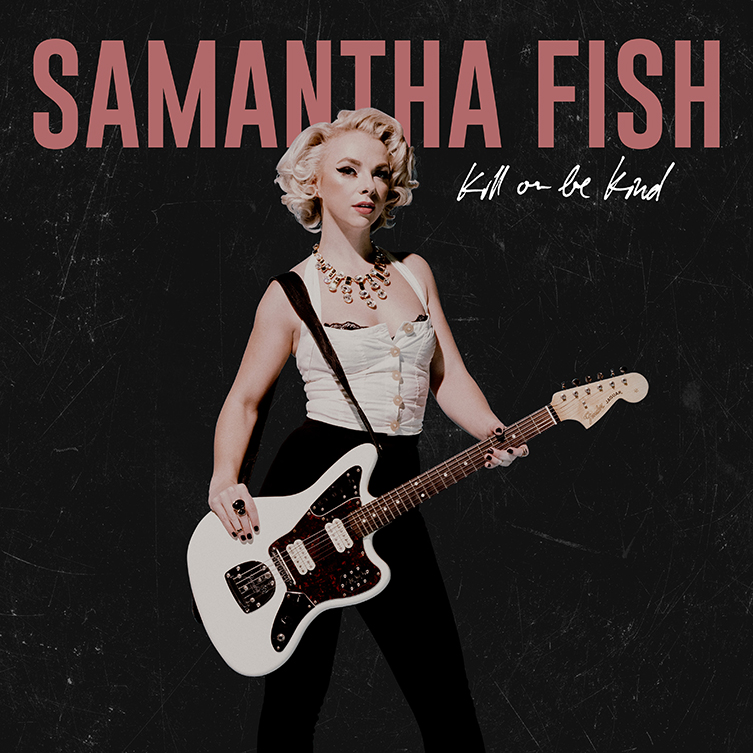
With that, we quickly said goodbye before we were cut off. Samantha was so easy to talk to, I felt like we could have continued for hours! I wanted to know more about her business practice and that side of things, but time was against us. She has already covered that very helpfully on the video I mentioned in the text, which we have embedded in this article too. It’s very much worth a look, so please make some time for that if you have ambitions about cutting your own path in the industry.
Samantha and her band will hopefully be touring in the UK in March 2021. Keep up with her via her social channels and the official Samantha Fish website. In the meantime, have a listen to her newest record, Kill or Be Kind, out now on Rounder records, and get practising with that slide!
We’d like to thank Samantha for staying inside on a sunny Louisiana day to chat with us. We’d also like to thank Peter Noble for all of his help in setting this up.
Thank you for reading, we’ll see you next time.


